With its warm, usually calm seas, and hidden coves ripe for exploration, Palau is ideal for kayaking. The Rock Islands, with their unique topography – think maze-like channels, white-sand beaches, and aquamarine waters surrounding jungle-clad islets – are prime kayaking territory. Whatever your skill level, you’re guaranteed a memorable experience, whether it be on a half-day jaunt or a one-week expedition. Hard-core adventurers can arrange off-the-beaten-track, tailor-made trips that combine kayaking and camping. Both Fish 'n Fins and Sam's Tours employ qualified guides who run excellent kayaking tours from Koror.
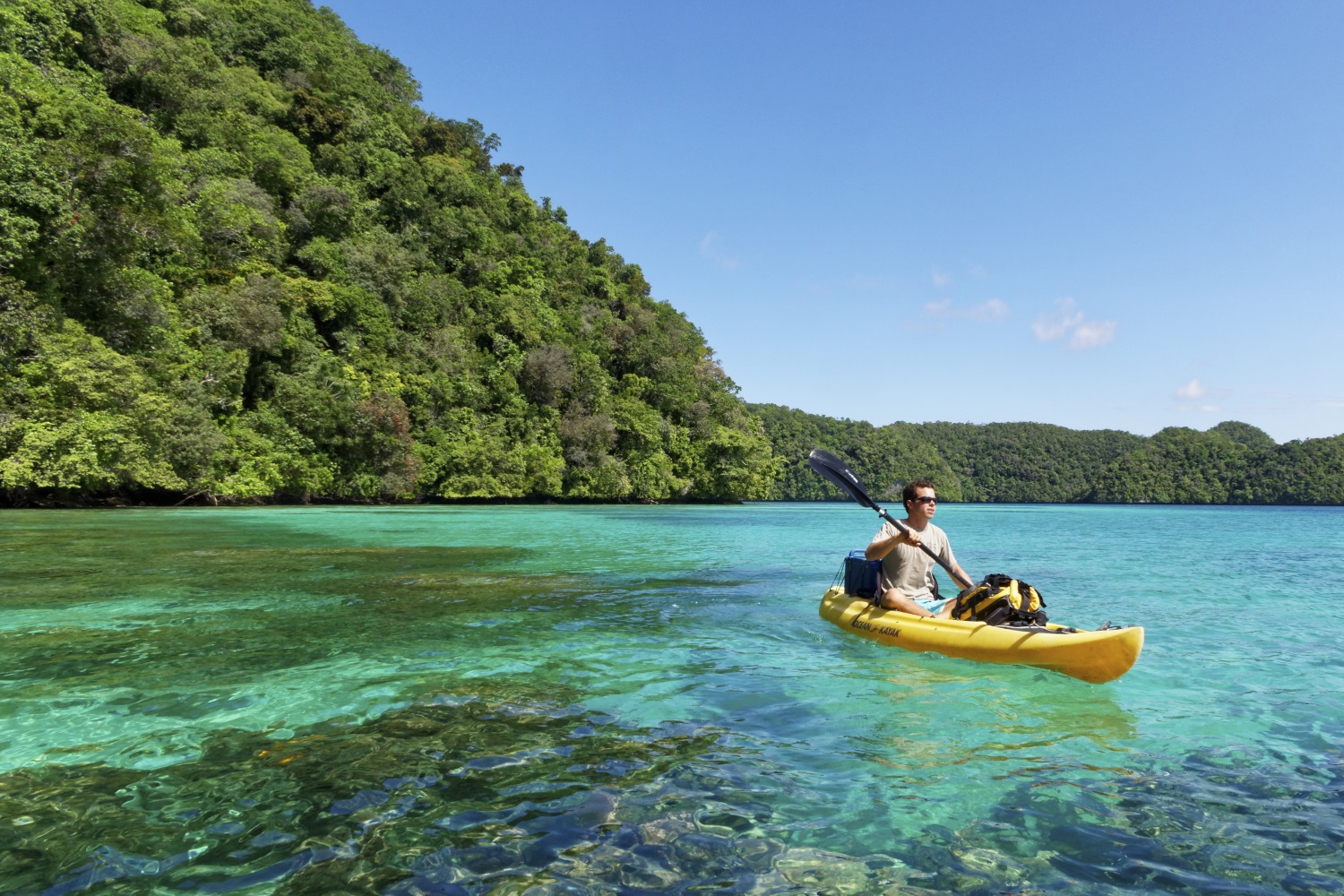
If you want to live out that desert-island fantasy – gazing at the stars from an empty white-sand tree-fringed beach while waves gently lap the shore – Palau's Rock Islands are hard to beat. Some of the islands have been set up for camping, with toilet facilities and shelters. Accessing them is easy; you can organise for a dive shop in Koror to drop you off on a deserted island and pick you up later at an arranged time. For the full Robinson Crusoe experience, it's also possible to combine camping with kayaking. Fish 'n Fins and RITC can rent out all the necessary equipment and organise transfers.
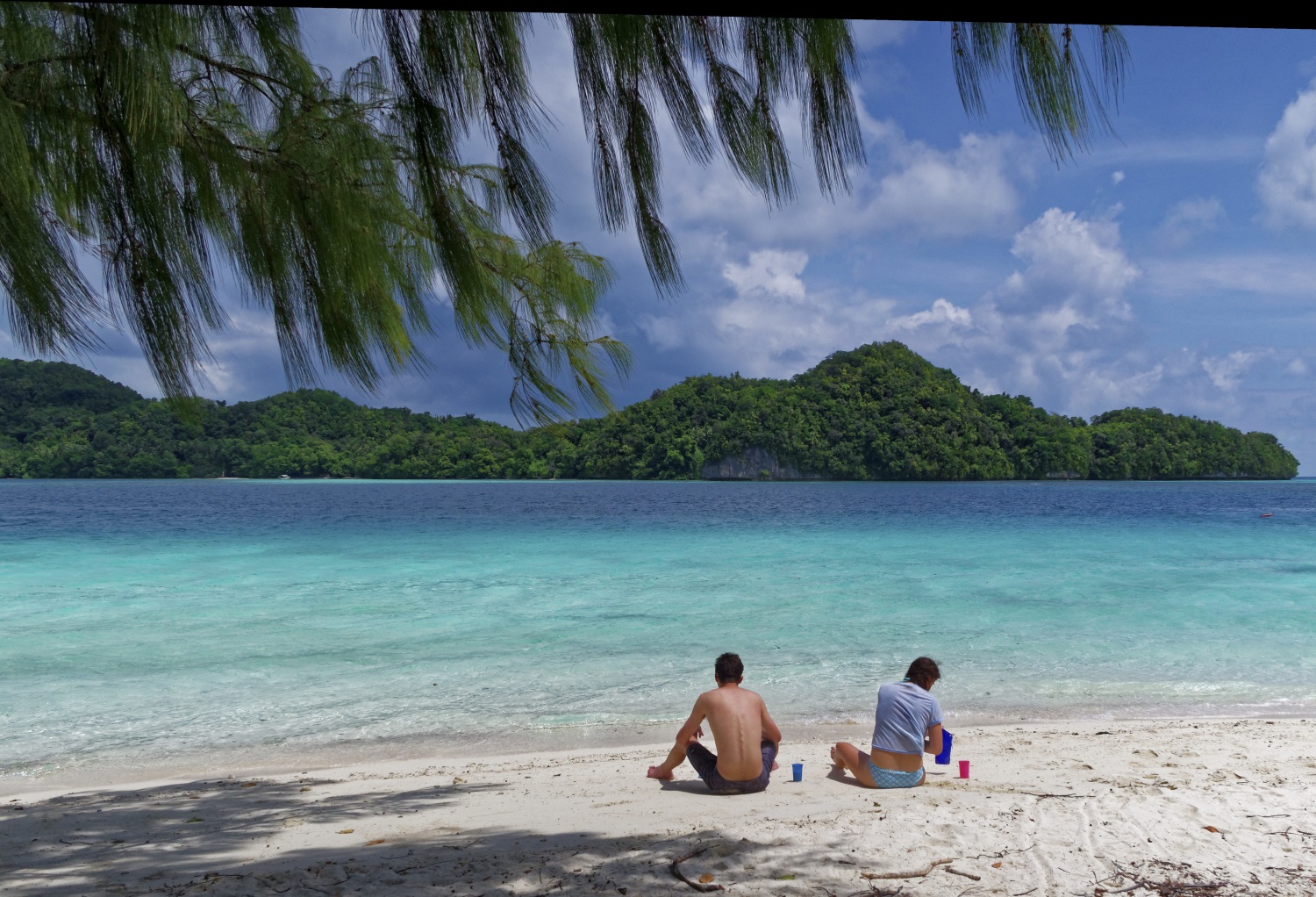
Seen from above, Palau's scenic beauty can bring a tear to the eye. Palau Helicopters has a range of scenic flights over the region, including a fantastic 45-minute tour over the Rock Islands and the strikingly photogenic Seventy Islands. A cheaper alternative is offered by PMA, which runs 40-minute tours taking in the Rock Islands and the Seventy Islands.
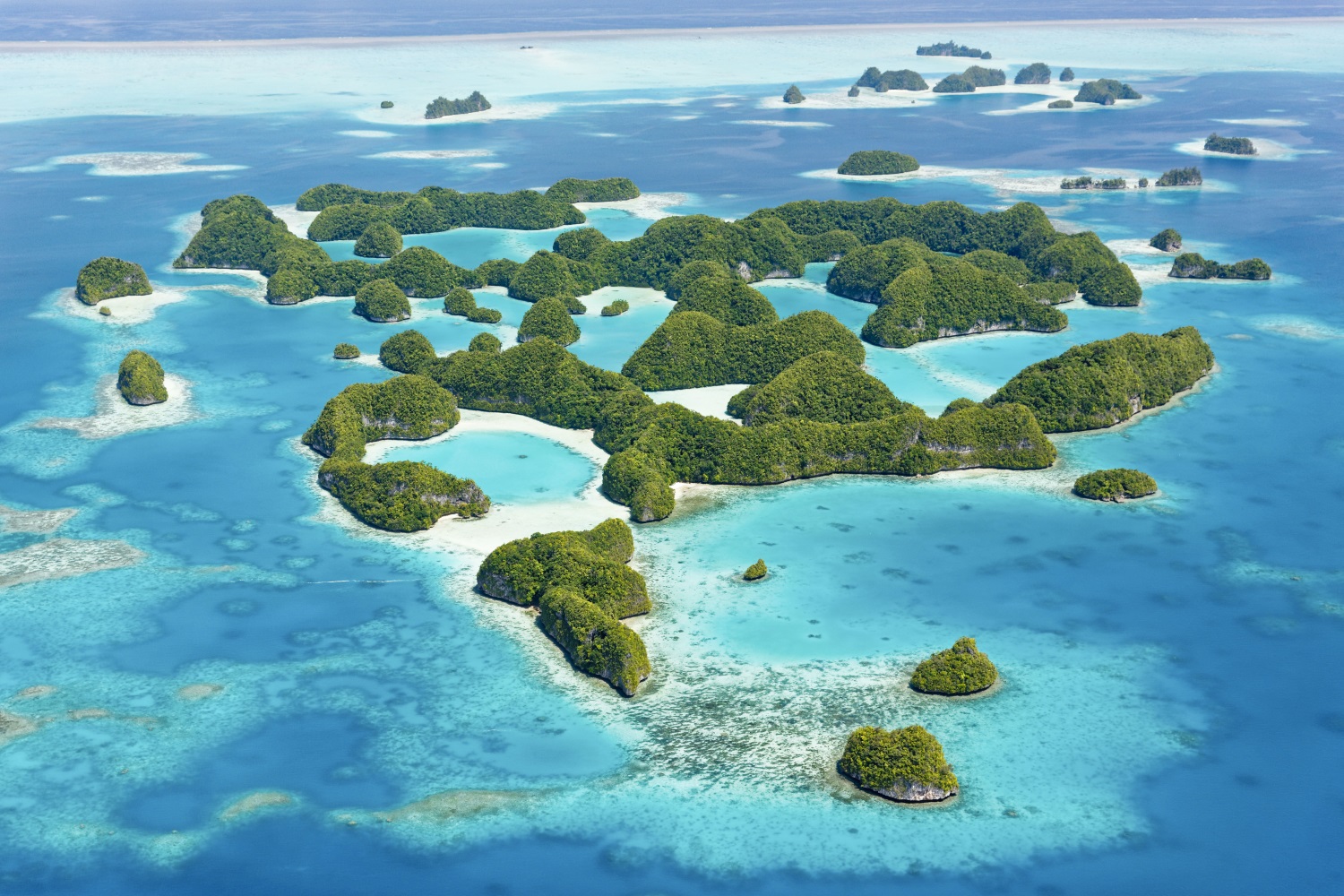
When not on the dreamy expanses of white-sand beach on Koror and Babeldaob, you can take a dip in lovely natural pools. One of Babeldaob's premier attractions, Ngardmau Waterfall can be accessed with a 20- to 30-minute hike along a jungle path, or via a monorail. Also on Babeldaob, Ngatpang Waterfall is smaller but drops into a broad pool that just begs you to swim.
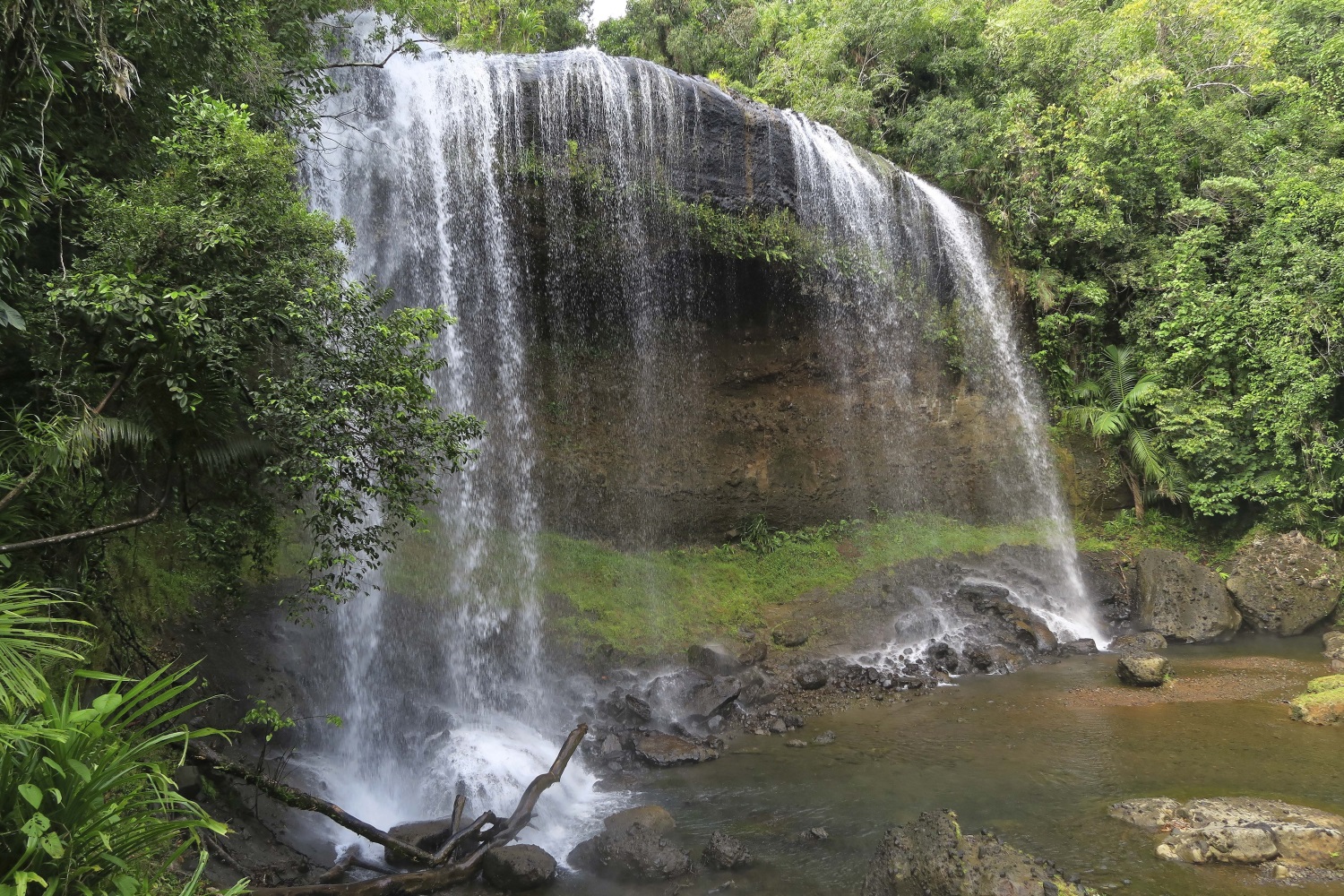
For a country its size, Palau has a good selection of stand-out museums. For historical background, head to the Etpison Museum, which showcases Palauan and Micronesian culture and features an excellent collection of storyboards (carved wood panels portraying scenes from local myths and legends). Another great museum is the Belau National Museum & Bai, where you’ll find a range of Palauan artwork, plus an impressive wood-and-thatch bai (men's meeting house) on the museum grounds. Two other well-preserved bai – the Airai Bai and the Melekeok Bai – can be seen on Babeldaob. Archaeology enthusiasts should also head to the Badrulchau Stone Monoliths, at Babeldaob's northernmost point. This hillside site with its large basalt monoliths has been called ‘Easter Island of Micronesia’. The origin and purpose of the stones is unknown.
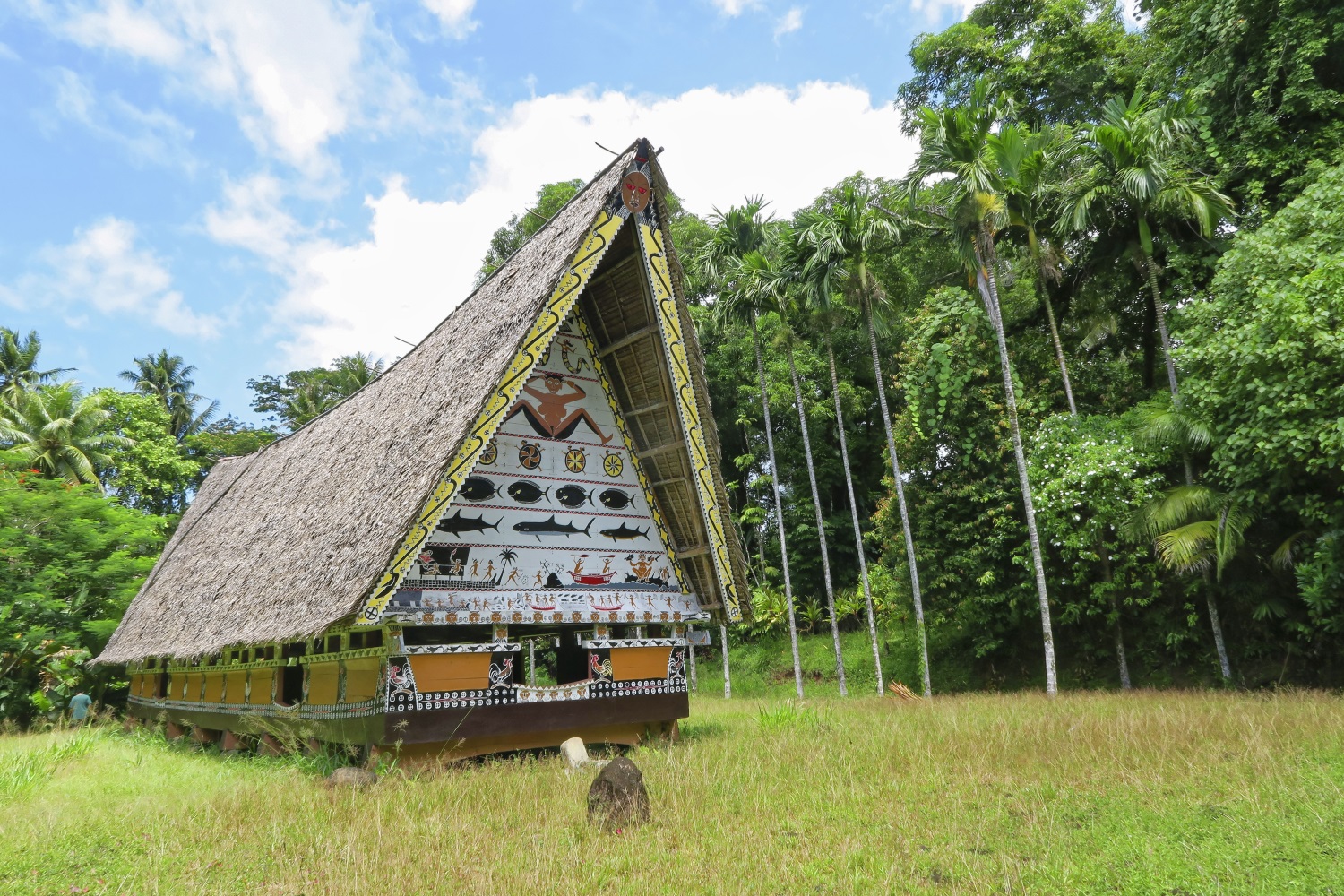
Palau is also home to many WWII sites and relics. On Peleliu, there are numerous poignant reminders of the battle that took place here in September 1944, with aircraft, tanks and guns among the remains scattered across the island. The WWII Memorial Museum is a good place to begin the history lesson.
To get a feel for Palau's wild interior and tear up old military tracks, join an off-road driving tour, a fun way to explore Koror and Babeldaob. Fish 'n Fins has a fleet of comfortable and well-maintained Polaris AWDs – a cross between a 4WD and an ATV – and offers excellent half- and full-day guided expeditions starting out from Koror. You'll see gorgeous, otherwise-inaccessible landscape and attractions, including pristine rainforest, waterfalls, abandoned old villages and historical points of interests. Guides are informative, providing interesting titbits on the island's natural environment and history, and you'll stop frequently at lookouts. Leave your white shirt in your hotel room – you're bound to get dirty, whether merely dusty or soaked in mud.
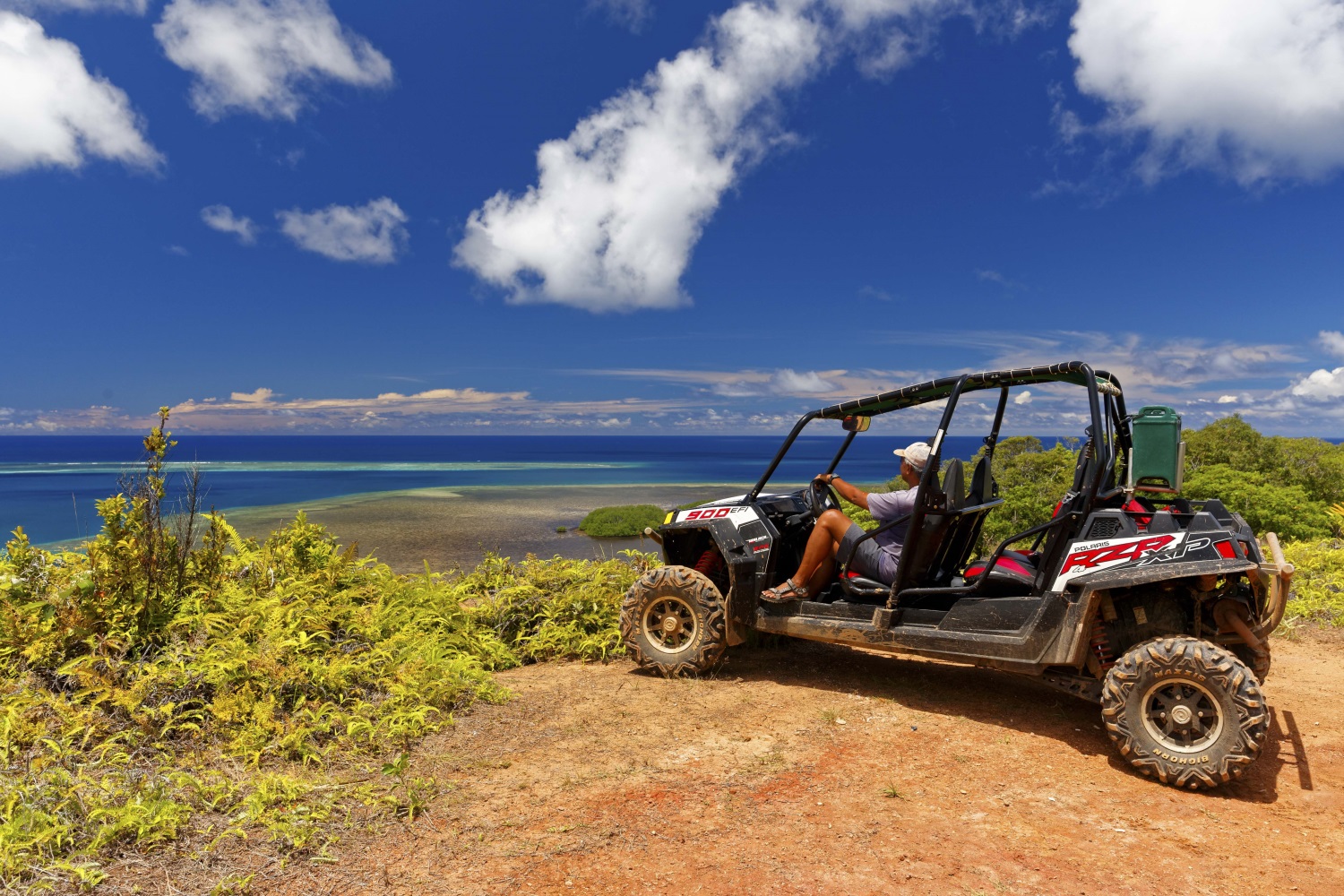
Koror is a great place to buy storyboards and local handicrafts. Some of the most elaborate storyboards can be bought at the Koror jail prisoners’ gift shop. Inmates at this jail who behave well are allowed to create the wood carvings and sell them to the public. The upstairs section of the Etpison Museum also has a large gift shop selling storyboards, as well as jewellery, clothes, posters and other items. For even more options, head to the Ulekdubs Gift Shop, located at the Belau National Museum. Elsewhere, Palau has numerous shops selling the usual array of souvenirs and decorative trinkets.